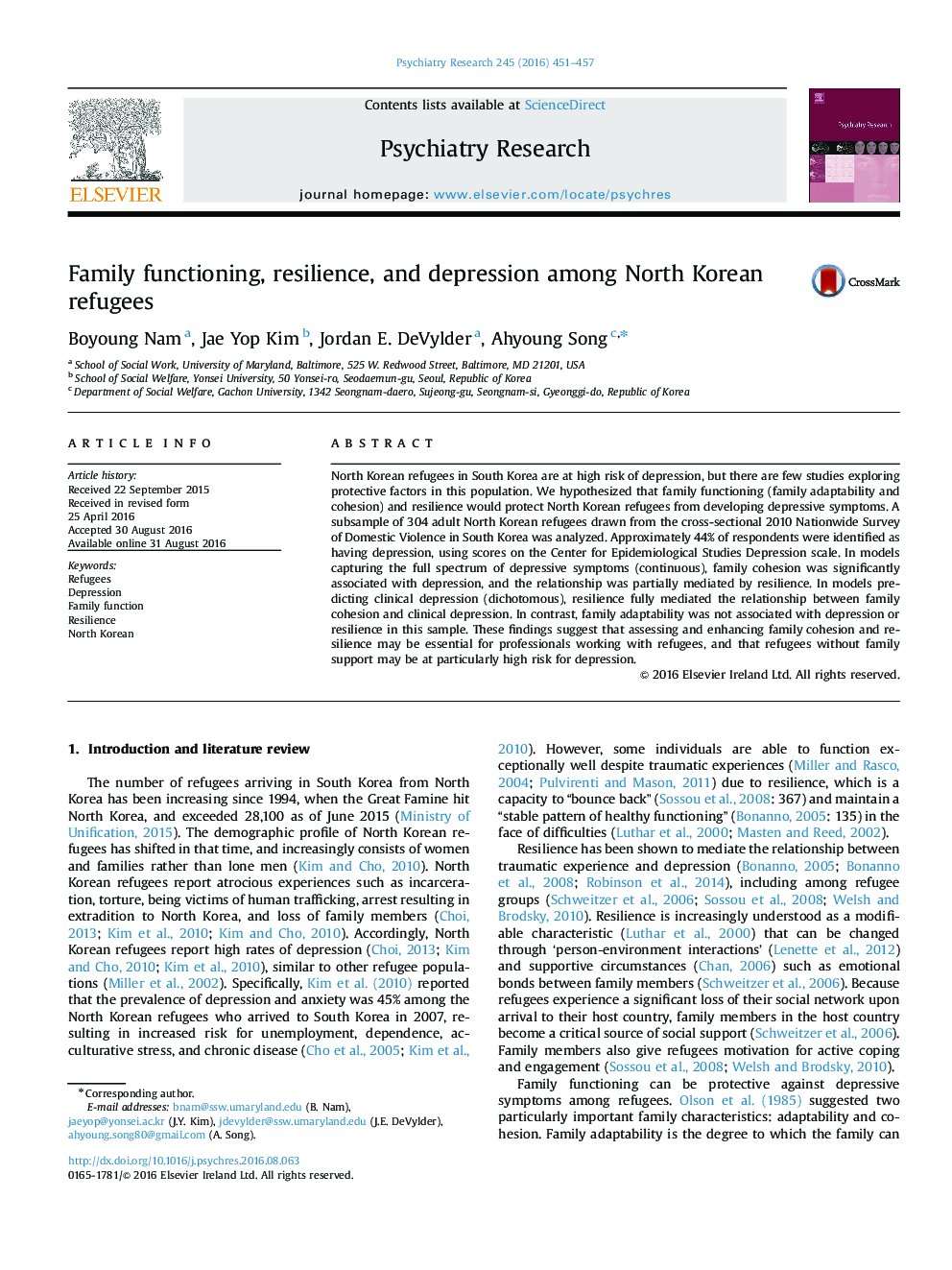| Article ID | Journal | Published Year | Pages | File Type |
|---|---|---|---|---|
| 6812516 | Psychiatry Research | 2016 | 7 Pages |
Abstract
North Korean refugees in South Korea are at high risk of depression, but there are few studies exploring protective factors in this population. We hypothesized that family functioning (family adaptability and cohesion) and resilience would protect North Korean refugees from developing depressive symptoms. A subsample of 304 adult North Korean refugees drawn from the cross-sectional 2010 Nationwide Survey of Domestic Violence in South Korea was analyzed. Approximately 44% of respondents were identified as having depression, using scores on the Center for Epidemiological Studies Depression scale. In models capturing the full spectrum of depressive symptoms (continuous), family cohesion was significantly associated with depression, and the relationship was partially mediated by resilience. In models predicting clinical depression (dichotomous), resilience fully mediated the relationship between family cohesion and clinical depression. In contrast, family adaptability was not associated with depression or resilience in this sample. These findings suggest that assessing and enhancing family cohesion and resilience may be essential for professionals working with refugees, and that refugees without family support may be at particularly high risk for depression.
Related Topics
Life Sciences
Neuroscience
Biological Psychiatry
Authors
Boyoung Nam, Jae Yop Kim, Jordan E. DeVylder, Ahyoung Song,
